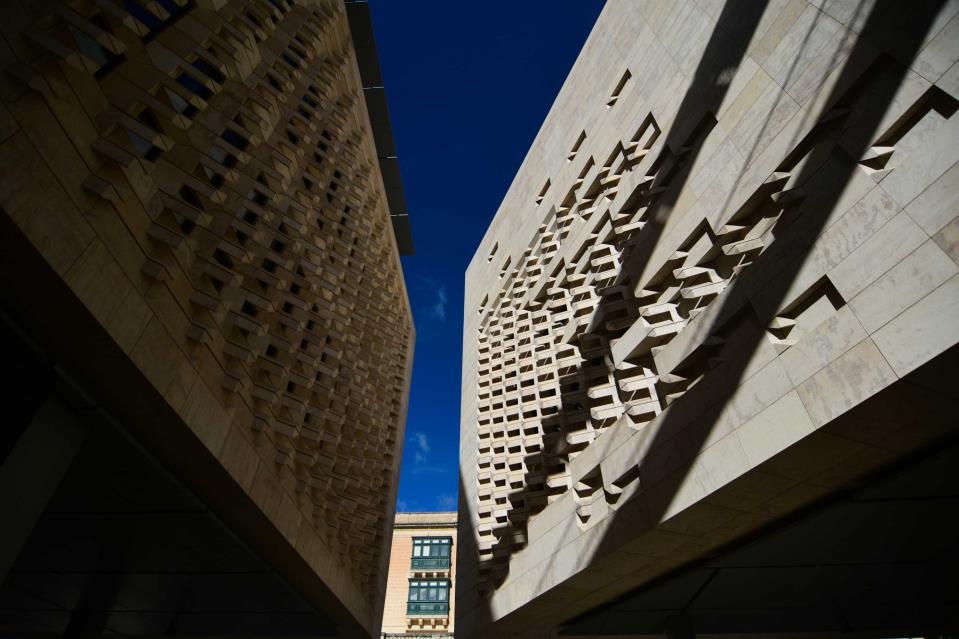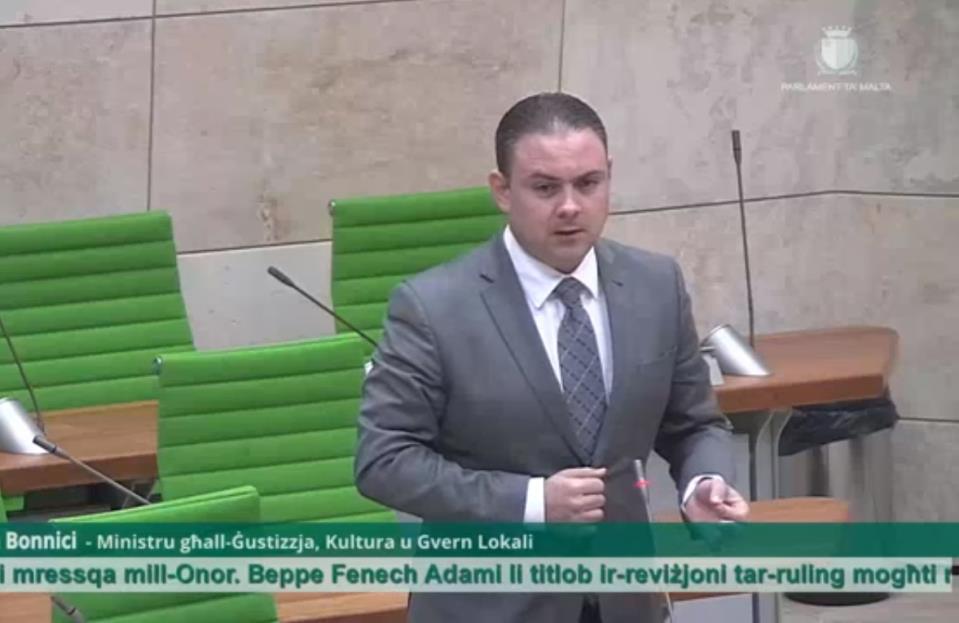Nationalist MP Carmelo Mifsud Bonnici this evening called for amendments during the second reading of the Public Administration Bill, which Justice Minister Owen Bonnici hailed "a strong step forward in favour of democracy." Mifsud Bonnici said that the Opposition will be voting against the bill if it is not amended.
The bill seeks to create a framework for higher scrutiny of public appointments, such as ambassadors, high commissioners and the heads of certain regulatory bodies.
Speaking in Parliament, Mifsud Bonnici called the current draft "a front" and said that it requires amendments in order to truly become a step forward in democracy. "We will vote against it if our amendments are not introduced as we feel this is a front, showing you will be accepting public scrutiny but in reality you will not be," he said.
"If you read between the lines..it looks like it is a progressive step however in reality it is there so everything remains the same," he said, adding "let's introduce this law, but let's do it well."
Mifsud Bonnici said that all the questions and answers should be made public straight away and scrutiny through writing should be avoided.
"We are a democracy and have liberty, and things should not be in hiding," said Mifsud Bonnici, who suggested that the interviewee should face the committee in person. "We will see if they will be able to stand their ground, and God forbid we have people in these positions that cannot stand their ground," he said.
The second amendment suggested by the Opposition was that the Minister should not have the final decision on whether the person is appointed into that position or not.
As the draft stands, ministers are obliged to seek advice from the committee, however the decision is ultimately in their hands.

"It would be political suicide if the Minister does not take the advice of the committee," he said. "This is a question of checks and balances in order to have more of a democratic culture," he continued, adding that "there needs to be autonomy."
The third amendment requested by the Opposition was that the report should be left in the hands of the committee rather than be restricted to a 'yes' or 'no' reply, in order to create more room and flexibility for clarification of decisions. "The committee should have the liberty to elaborate further, whether, for example, the only hurdle is a conflict of interest which could be arranged."
Mifsud Bonnici said that the Opposition agrees with the Committee being comprised of three Government MPs and two Opposition MPs, reflecting the make-up of parliament.
Labour MP Robert Abela later argued that the scrutiny will be made public at all stages despite being in writing. "The public will know from the beginning who the person will be, the questions asked to them, as well as access to answers and an eventual hearing, it does not need to be amended," he said. "This is a courageous act that till today no one had the courage to introduce."
Nationalist MP Mario Galea, referring to the draft said "the devil is in the detail," and called it a "gimmick". "The scrutiny this draft mentions is pretend," he said. "It says a lot about the Government that there have been five Police Commissioners so far," he said.

'Transparent' and 'strong' act 'in favour of democracy'
Earlier Bonnici expressed his pride that the Government is pushing for this law in the beginning of the legislature and as one of the first laws that the Government is pushing forward, calling the act "a strong step in the right direction."
Bonnici said that most of the feedback he got regarding the draft was positive, from ex-minister of Justice and University professors, amongst others. "They all see it as a positive step forward," he said. "For those who were critical of the draft, I think they are not seeing the big opportunity here," he continued.
Regarding publically displaying the process, Bonnici called this a "great sign of transparency."
The wording of the Bill dictates that it is up to the committee members to decide on whether to keep correspondence private or not, and does not specifically lay out reasons of national security, but rather leaves it up to the committee.
"The Committee can give advice in favour of or against appointments in question," said the Minister, adding that "the Minister taking advice can reap positive results, naturally, not taking the advice will not reap positive results."
Clarifying some points regarding the draft, Bonnici said that if changing position to the same position elsewhere, for example as the Ambassador of one place to that of another will not require the person in question to undergo scrutiny. Similarily, those who are already in the position will not have to undergo scrutiny. "This will be for new people taking these positions," he said.
Referring to the Judical Services Appointment Committee, Bonnici said "when the committee says no, I personally have always taken their decision, even when it was I who had nominated the person in a magisterial position. When we ask for advice we listen to the advice, we respect the institutions, we have respected decisions of institutions even when we did not agree with them. That is democracy."
Regulatory bodies that are affected by this include the Central Bank of Malta, the Malta Financial Services Authority, the regulator for Energy and Water Services, the authority for Transport in Malta, the Malta Communications Authority, the Malta Gaming Authority, the Planning Authority, the Environmental and Resources Authority, the Commissioner for Voluntary Organisations, the Lands Authority, the Malta Competition for Consumer Affairs Authority, the Malta Medicines Authority, the Malta Tourism Authority, the National Commission for Higher Education and the Financial Intelligence Analyses Unit.